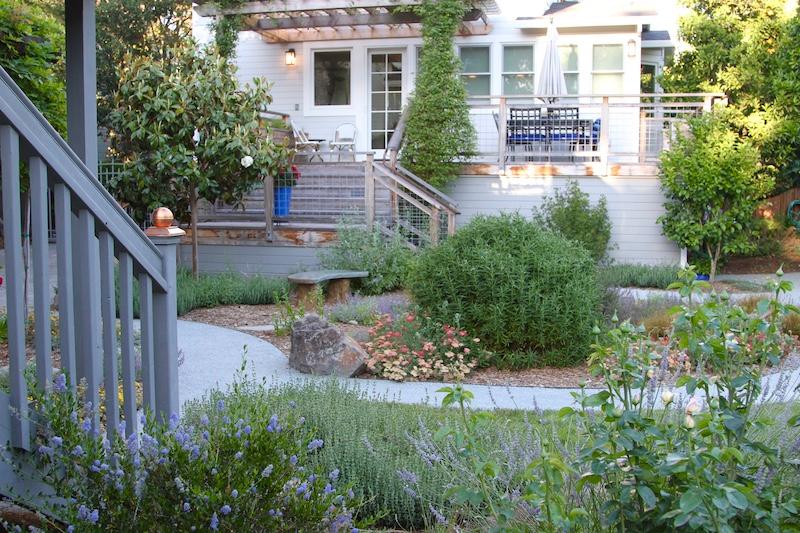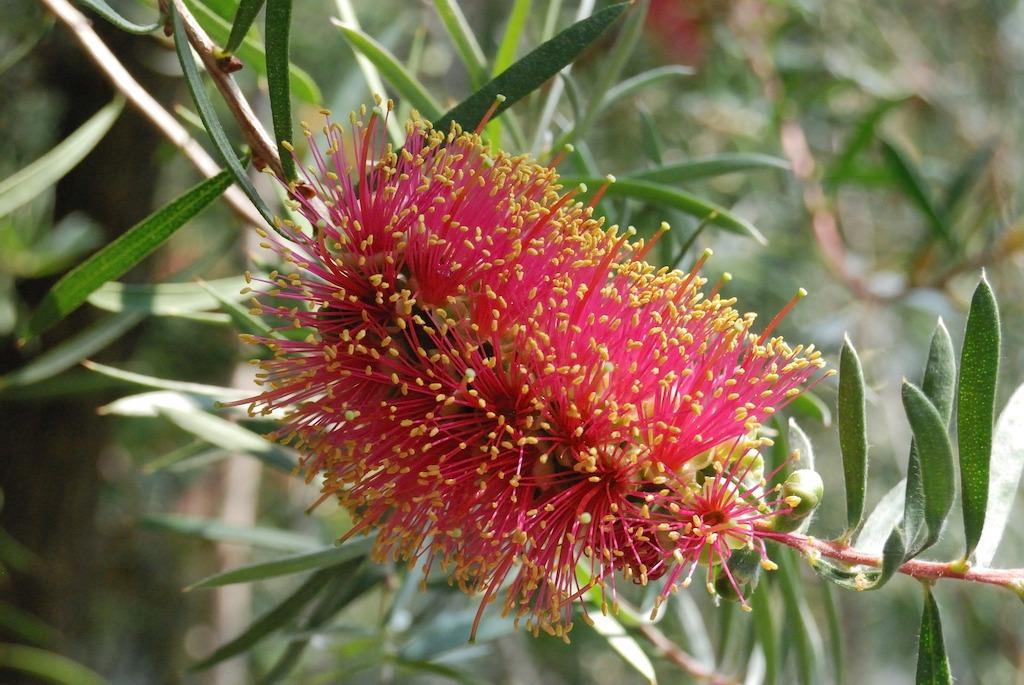This year’s epic rainfall has thankfully nudged us out of the drought zone. But hold onto your hankies because it may also bring a bumper crop of spring allergies. Many drought-stressed grasses and trees are now moisture-laden, ramping up their pollen production to make up for previous dry seasons. No one can completely avoid airborne pollen from our surrounding North Bay open spaces. But in your own yard, you can plant your landscape to avoid the worst allergy offenders.
Choose your plants wisely.
Factors to consider include wind- versus insect-pollinated plants, and scent- versus pollen-induced allergies. Since not all pollens are equally allergenic, and some are more airborne than others, it’s important to choose plants wisely. For example, penstemon (above) and sticky monkey flower (below) are tubular shaped and tend to spread less pollen because the pollen is located deep inside the blossom. That’s great for the butterflies and hummingbirds that feed on them—and allergy sufferers.
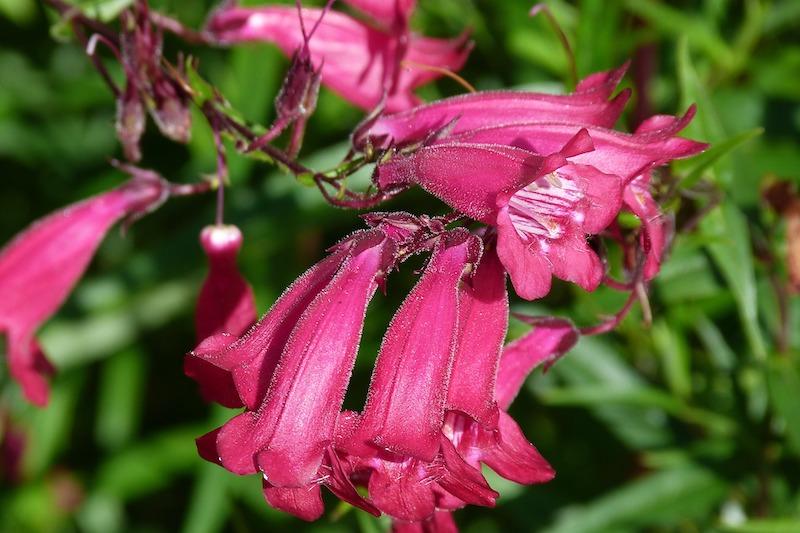
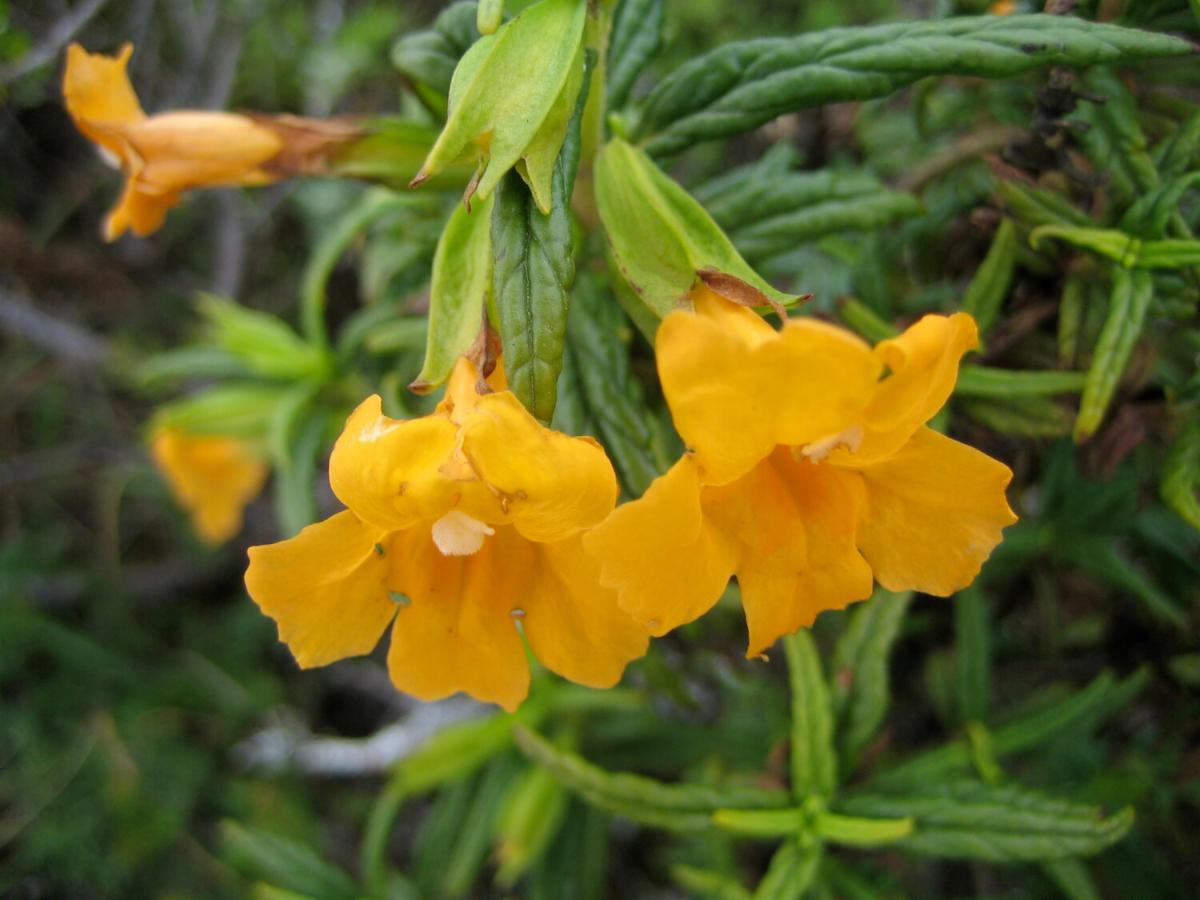
Some of the worst allergenic offenders to avoid include:
- Acacia
- Blue fescue
- Bottlebrush
- Coyote brush
- Fountain grass
- Live oak
- Olive trees
- Ryegrass
- Sycamore trees
- Willows (male, some species)
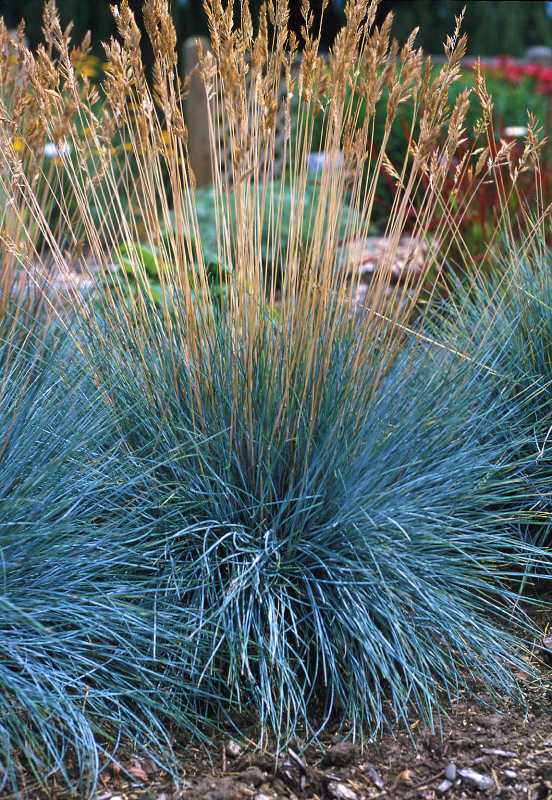
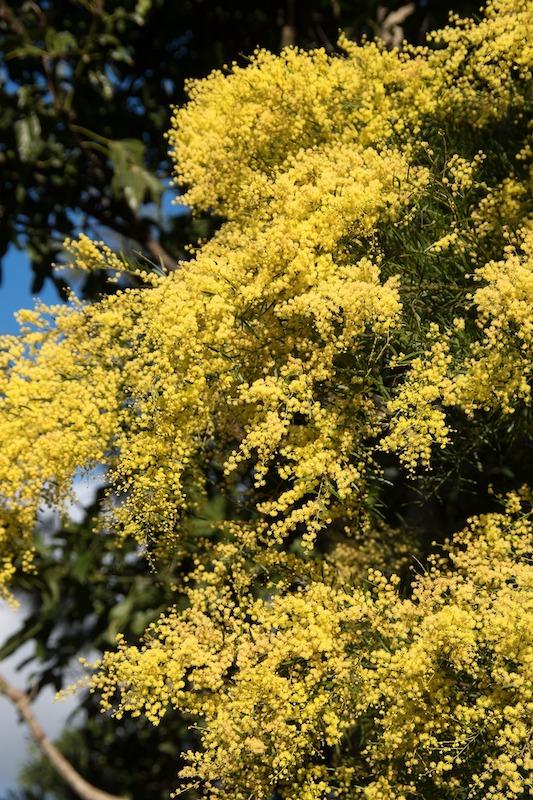
Be a feminist in your garden.
Generally speaking, male plants produce pollen and female plants produce seed pods or fruit. It gets a little tricky because some plants are separate-sexed, while others contain qualities of both sexes on one plant. Separate-sexed plants need wind, birds or insects to carry the pollen from the males to the females. Because the fruits and seed pods of female trees and shrubs are often deemed “too messy,” many municipal and private landscapers choose male plants. The result? An overabundance of pollen producing male plants that exacerbate asthma and allergies.
Get professional advice.
Here at Equinox, when we initially speak with clients, we ask them about their allergies, and help identify problematic plants that could be replaced with healthier choices. We also design landscapes that work with your home layout so that certain plants are placed away from bedroom windows, for instance. We can advise you on female plants that produce beneficial fruits and seeds, and how to incorporate the “waste” into a healthy garden ecosystem.
* * *
Dig Deeper:
Tom Ogren is the botanist who devised the Ogren Plant Allergy Scale, or OPALS. His guest essay in a Scientific American blog explains how “botanical sexism” in urban landscape design contributes to increased allergies.
* * *
If you are a seasonal allergy sufferer, but still desire a beautiful home landscape, do not despair. We can work with you to help minimize the irritants. Give us a call at 707-789-9786.
